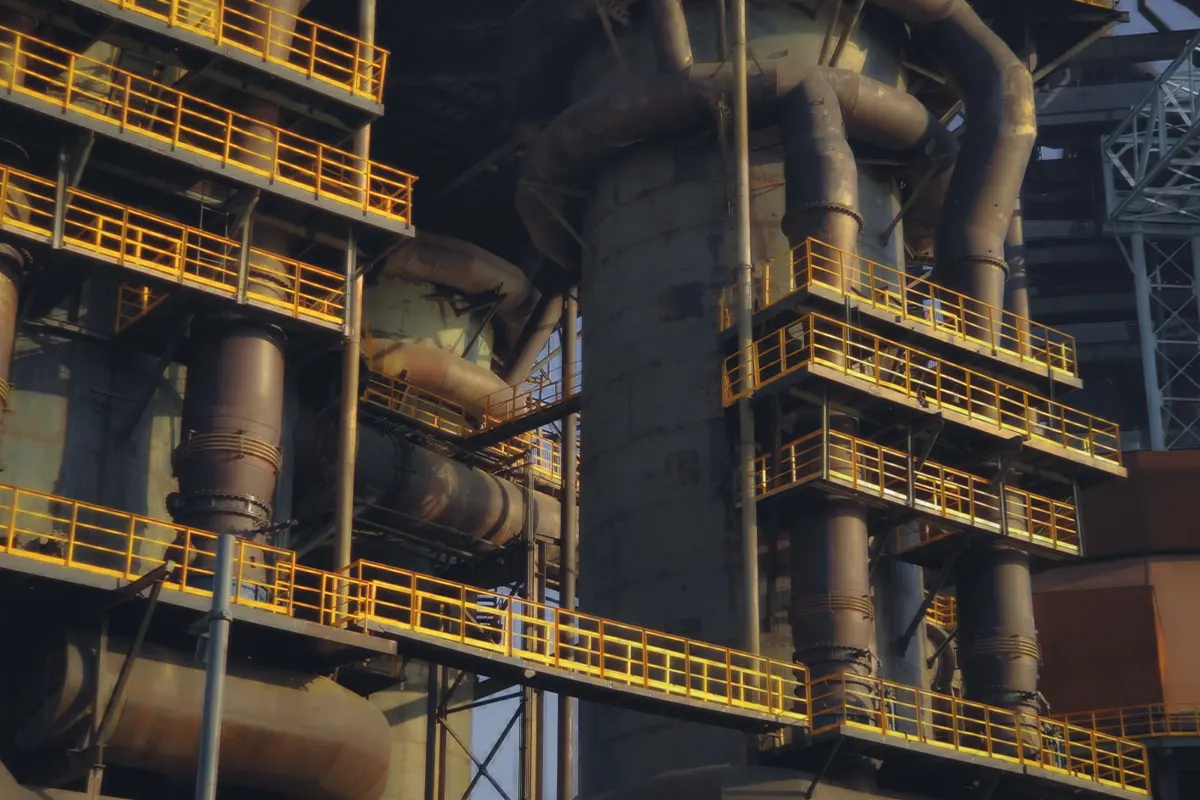In the realm of energy production, oil refineries stand as the vital hubs that convert crude oil into a myriad of valuable products. These industrial complexes play a pivotal role in meeting the world’s insatiable demand for energy, providing us with gasoline, diesel, jet fuel, lubricants, and an array of petrochemicals.
In this article, we take a look at how crude oil is processed in an oil refinery and how complex these processes are.
The Anatomy of an Oil Refinery
Oil refineries are sprawling complexes that encompass a multitude of interconnected units, each with a specific purpose. The primary process begins with the distillation of crude oil, separating it into various fractions based on their boiling points. These fractions then undergo further treatment in secondary units, such as catalytic cracking, hydrocracking, and reforming, to transform them into desired products. Additionally, refineries house auxiliary units for wastewater treatment, power generation, and storage facilities to ensure smooth operations.
Environmental Considerations in Oil Refinery
While oil refineries are essential for meeting energy demands, they also pose environmental challenges. Refineries emit greenhouse gases, such as carbon dioxide and methane, contributing to climate change. However, stringent regulations and technological advancements have significantly reduced emissions. Refineries also face the challenge of managing wastewater and minimizing the release of pollutants into the environment. Many refineries have implemented advanced treatment systems to mitigate these concerns and ensure compliance with environmental standards.
Oil Refinery Safety and Maintenance
Safety is of paramount importance in oil refineries due to the presence of hazardous materials and high-temperature processes. Rigorous safety protocols, including regular inspections, training programs, and emergency response plans, are implemented to safeguard workers and surrounding communities. Maintenance plays a crucial role in ensuring the smooth functioning of refineries, preventing accidents, and maximizing efficiency. Regular inspections, equipment upgrades, and preventive maintenance programs are conducted to minimize downtime and optimize operations.
Technological Developments in Oil Refining
Oil refineries have embraced technological advancements to enhance efficiency, reduce emissions, and diversify their product portfolios. Advanced process control systems, real-time monitoring, and automation have revolutionized refinery operations, enabling precise control and optimization. Additionally, refineries are exploring renewable energy integration, such as solar and wind power, to reduce their carbon footprint. Research and development efforts are focused on developing cleaner and more efficient refining processes, including biofuels and hydrogen production.
Socioeconomic Impacts of Oil Refining
Oil refineries have a significant socioeconomic impact, providing employment opportunities and contributing to local economies. These industrial complexes create jobs across various sectors, from engineering and operations to maintenance and administration. Additionally, refineries generate tax revenues that support infrastructure development and public services. However, the transition towards cleaner energy sources may require refineries to adapt and diversify their operations, ensuring a sustainable future for both the industry and the communities they serve.
To summarize
Oil refineries are the lifeblood of our energy-dependent society, transforming crude oil into a wide range of essential products. While they face environmental challenges, refineries continue to evolve, embracing technological advancements and striving for sustainability. As we navigate the energy transition, refineries will play a crucial role in shaping a cleaner and more efficient future.

